Center for Empathy and Compassion Training in Medical Education
- Our Team
- Education
- Sanford Scholars
- Research
Learn about our medical education seed grant awardees and their projects.
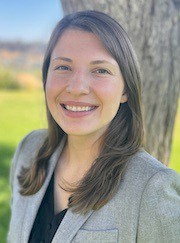
Anna Astashchanka
Research Project: Advanced Care Planning: Honoring What Matters for Hospitalized Patients
Project Description: Our project aims to design and implement a physician facing, evidence-based, self-directed video learning tool to provide a standardized approach to Advanced Care Planning (ACP) in high-risk patient populations. The vast majority of patients do not have their first ACP discussion until they are hospitalized, providing an important opportunity for inpatient providers to help patient’s shape the future of their medical care. By providing this tool, we hope to de-stigmatize discussions regarding death and dying, leading to lessened physician grief-response surrounding patient deaths, a sense of enhanced empathy towards themselves and their patients, and to improve quality and frequency of ACP documentation.

Annie Nguyen
Research Project: Fostering Physician Compassion and Understanding for Older Patients Who Use Cannabis
Project Description: While cannabis use is falling among some age groups, use is increasing for older adults. Many older adults use cannabis to treat pain, sleeping disorders, and anxiety and often do not discuss cannabis use with their providers. At the same time, many physicians feel ill-equipped to advise patients due to lack of training. This communication gap can threaten compassionate dialogue between patients and providers about treatment choices. We will create and deliver an education series to geriatrics and geriatric psychiatry physicians to raise awareness and knowledge about cannabis and build competence for compassionate dialogues with patients about cannabis use.
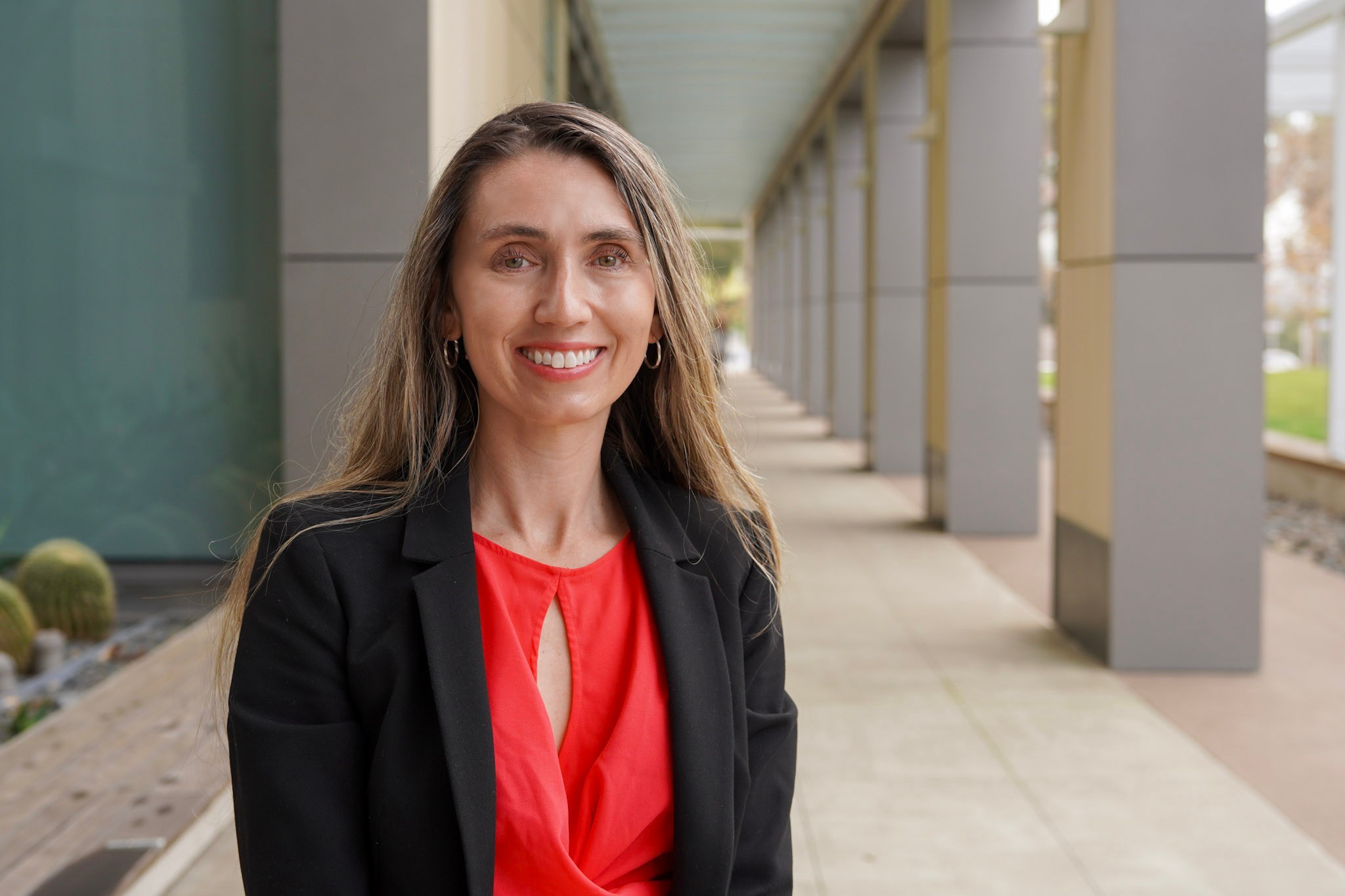
Desiree Shapiro
Research Project: Inclusive Wellness in Medical Education
Project Description: This project aims to implement and evaluate an experiential and inclusive Well-being Course open to all UC San Diego Health Sciences students. This introductory Well-Being Course will offer students an opportunity to learn and practice individual and collective strategies to promote well-being, empathy, compassion, and connection. Despite the demands of their academic training programs, this course aims to be a supportive space to connect and flourish, developing skills that will be useful in training and along one's professional journey. Students will engage in well-being, empathy, and compassion-promoting strategies and discussions, covering topics such as Mind-Body Connection, Self and Community Compassion, Narrative Reflection, Nutrition, Cultivating Joy, Engaging in Play, and Connecting with Nature. Evaluating the impact of this course on student well-being, empathy, and compassion will be useful in guiding future holistic well-being initiatives for health professional students and trainees.

Ida Wong-Sefidan
Research Project: Insights into Student Performance in Medical School Curriculum; Discovering Opportunities for Increased Compassion for Teaching
Project Description: Physician medical educators have an obligation to ensure those educated are competent, making it a challenge to create a curriculum that is not only comprehensive but fair. Nevertheless, medical school educators can be pressured to conform curricula and grading to what learners perceive as fair. Understanding faculty perception of students’ academic entitlement is essential because it can influence educators’ abilities to create an empathetic environment for learning and medicine. The goal of this study is to evaluate UC San Diego’s pre-clinical courses’ passing rates and exam changes over time. Course directors’ perceptions on testing and academic entitlement, as well as empathy and burnout will also be assessed.

Jen Yu
Research Project: Training Compassionate Future Educators: Evaluating a New Educational Program to create Multi-FACET’ed (Fellow as Clinician Educator Track) Medical Educators
Project Description: Most physicians are involved in educating our trainees, but few have received formal training. To fill this gap, we established a Fellow as Clinician Educator Track (FACET), open to USCD pediatric fellows. FACET is a 24-month program that includes didactics, teaching experiences, master clinician shadowing, and a medical education research project. We will evaluate FACET to determine if it improves fellows’ compassionate teaching skills, self-reported empathy, self-reported knowledge and confidence in medical education topics, and a sense of their professional identity as an educator.
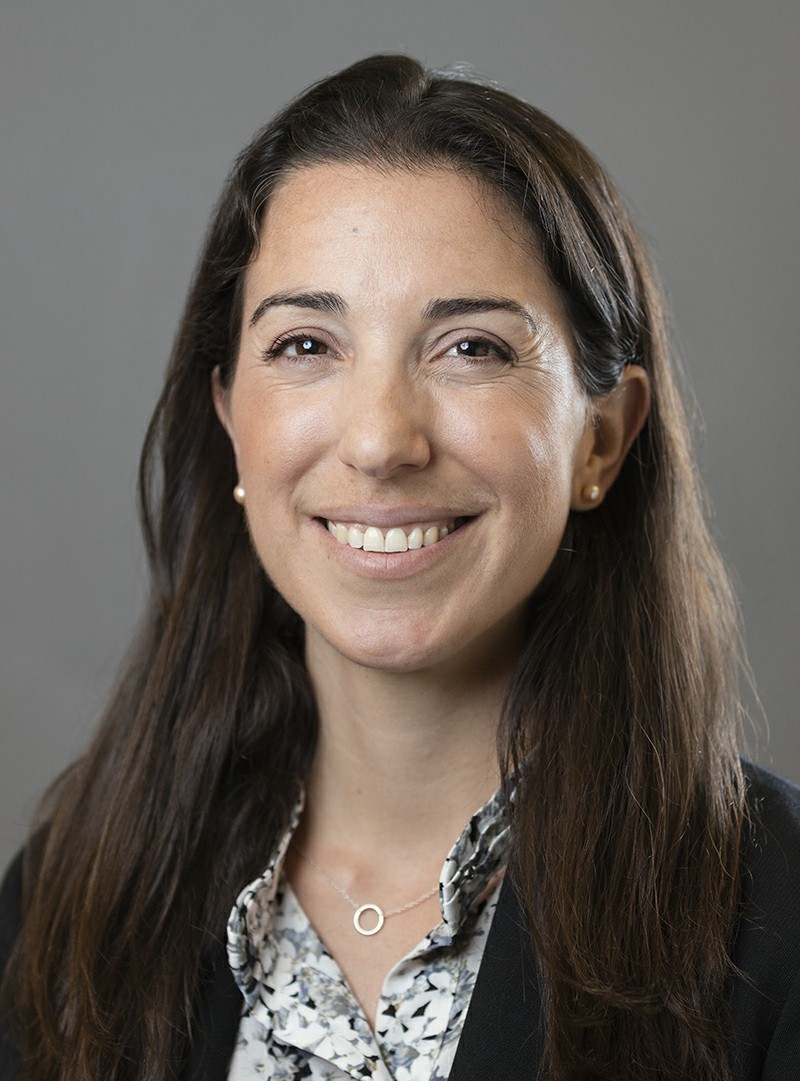
Julia Cormano
Research Project: Implementation and Evaluation of a Virtual Reality (VR) Platform as a Practice Tool and Assessment Tool during the Third Year Medical School OBGYN Clerkship
Project Description: Empathetic communication during an emergency obstetrics event is important to master and challenging to teach. Virtual reality (VR) provides an opportunity for an immersive experience to practice and receive feedback on this skill. In partnership with HealthScholars, the team will build a VR- based obstetrics emergency case with a best-practices assessment metric for empathetic communication. Artificial Intelligence tools to evaluate the learner on key empathy metrics will be validated against UCSD faculty evaluation of the same metrics. Once validated, this case will be built into the curriculum of the OBGYN core rotation for UCSD medical student in the 2024-2025 academic year.
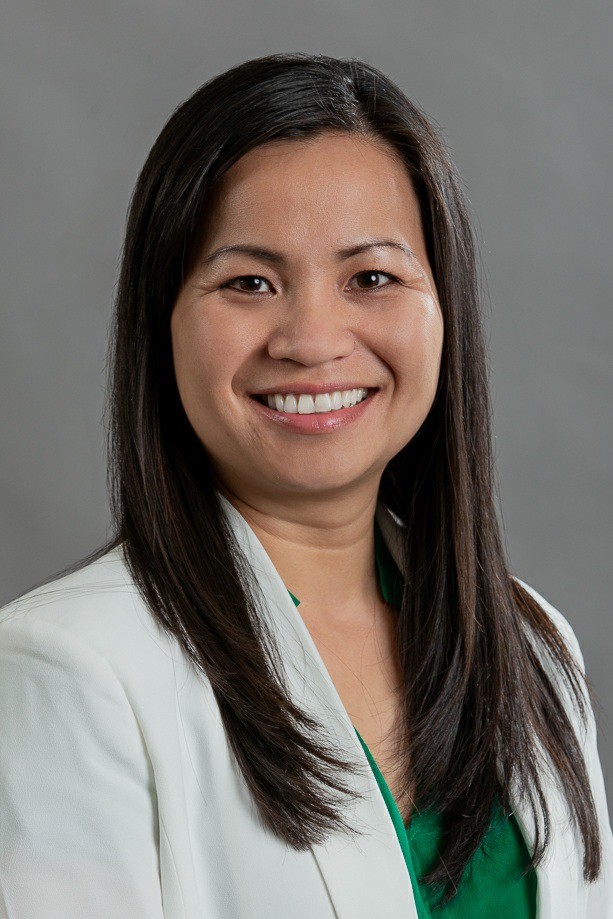
Mai Hoang
Research Project: Walking in their Shoes: Fostering Empathy and Compassion through the Obstetric Refugee/ Asylum Seeker Care Navigator Program
Project Description: Our project strives to cultivate empathy and promote compassion for pregnant immigrants among pre-clinical medical students while learning more about this unique patient population needs within the medical system. The Obstetric Immigrant Health and Clinical Experience is an 8-week course available to first and second-year medical students, during which students will work directly with a patient care navigator and a pregnant asylum seeker/ refugee in the UCSD Health Obstetric Refugee/ Asylee Care Navigation Program. Through lived experience, didactics, and group discussions, students will better understand how socioeconomic and legal challenges impact medical care access and obstetric outcomes. We will assess student's knowledge, attitude and levels of empathy and compassion before and after the elective and compare student's self-rating experience against patient's experience.

Maureen Ries
Research Project: Improving Resident Feedback through an Enhanced Coaching in Obstetrics and Gynecology (ECOG) Initiative
Project Description: This project aims to improve feedback in our Ob/Gyn residency program through an Enhanced Coaching in Obstetrics and Gynecology (ECOG) Program. 25% of medical residents nationwide are dissatisfied with the feedback received during medical training. A framework for relationship- centered feedback will be implemented and analyzed to determine if there is a positive impact on trainee self-compassion and feedback satisfaction. Research has demonstrated that improving communication and creating relationships in healthcare training programs can strengthen trainee performance. We will analyze whether faculty development sessions designed to improve coaching, communication and intergenerational empathy affect faculty compassion towards trainees. Resident milestones related to feedback and performance will be tracked pre and post ECOG implementation.

Menon Sahit
Research Project: Examining the Effects of Peer Support on Self-Reported Imposter Syndrome, Self- Compassion, Empathy Resilience and Burnout in Medical Students
Project Description: The aim of this study is to evaluate the efficacy of a peer support program on medical students over the 2024-2025 academic year; both on peer supporters and those that receive peer support (supportees) through the Medical Student Accessible Peer Support (MAPS) program. We will focus our research study on evaluating changes in self-reported self-compassion, empathy, resilience, and burnout among peer supporters and peer supportees over the course of the proposed academic year. The results of this study will not only add to the existing body of literature on the effects of peer support, but also help iterate and improve future MAPS training sessions to optimize the quality of support that MAPS offers.

Rabia Atayee
Research Project: Enhancing Interprofessional Collaboration: Integrating Compassionate Communication Education into Pharmacist Trainee Curriculum
Project Description: This project aims to integrate a comprehensive compassionate communication curriculum into the training of pharmacy trainees from their first year through post-graduate residency. Developed by the UC San Diego Health Sanford Compassionate Communication Academy Fellowship, the curriculum includes interactive workshops, role-playing, and case-based discussions. The goal is to equip pharmacy trainees with the skills to practice empathy and compassion in patient care and interprofessional teams, ultimately improving team function, patient care, and reducing burnout. The curriculum will be evaluated through pre- and post-surveys to measure changes in compassion, confidence, and the application of compassionate communication skills.

Rachna Subramony
Research Project: Examining the Role of an Empathy and Compassion Focused Curriculum on Medical Student Well-being and Mental Health during the transition from Medical Student to Resident Course
Project Description: Our project aims to assess baseline well-being and empathy levels among students at the completion of medical school based on chosen specialty and implement a novel approach to assess and teach compassionate communication skills during high acuity simulation cases. It can be difficult to translate learned compassionate communication skills in a patient encounter while also managing a clinically complex patient. We plan to develop a curriculum where we will assess compassionate communication skills during simulation cases where students are also managing challenging airways, patient stabilization, and performing other critical interventions. We will provide students direct feedback not only on their medical management during the simulated patient encounter but also on their ability to communicate plainly with compassion to patients and family members. We will utilize pre and post surveys to assess medical student well-being and empathy and conduct a simulation activity assessment to capture simulated patient and medical students perceptions of their communication.

Megha Shankar
Research Project: Developing Empathy and Compassion for Newcomers: Medical Education on Refugee, Immigrant and Migrant (RIM) Health
Project Description: We seek to develop, implement, and evaluate a medical school elective on refugee, immigrant, and migrant (RIM) health within UCSD School of Medicine. The target audience is pre-clinical UCSD medical students. The elective on RIM health will be rooted in cross-cultural care, seeking to promote empathetic and compassionate clinical care of newcomers. Students will have focused education around specific medical, social, and legal aspects related to RIM health. Classes will include guided discussions, community site visits, and guest speakers from local community members with lived experience. Evaluation will focus on knowledge, attitudes, and skills, as well as implementation outcomes.

Sean Kenmore
Research Project: UC San Diego LGBTQ+ Healthcare Elective
Project Description: Our project, “Developing and Implementing a Healthcare Elective to Enhance the Empathic and Compassionate Care of LGBTQIA+ Individuals,” seeks to address well-documented clinical disparities experienced by LGBTQIA+ people in the U.S. healthcare system. We believe it is vital to begin addressing this within medical education through thoughtful clinical exposure and experience. Our multidisciplinary elective clinical rotation will provide dedicated time for trainees to work with expert clinicians, receive dedicated didactics, engage with community organizations, and directly learn from patients within the LGBTQIA+ community. Through these experiences, we will assess the effect on learners’ comfort, knowledge, empathy, and compassion toward LGBTQIA+ individuals.

Rekha Chandrabose
Research Project: Anti-Racism in Practice for Anesthesiology Resident Training
Project Description: My project is a unique 3-year course for resident physicians focusing on the economic and educational roots of racism. We are scratching at the surface of the pervasive racism experienced by minoritized residents and physicians. It is vital to create a safe environment for minoritized learners, as well as an educational model that addresses biases that pervade medical decision making. The curriculum focuses on literature, research, and developing anti-racist interventions for future residents. Using a syllabus curated from documentaries, academic texts, current anti-racist theory, we will create a foundation from which residents can springboard solutions and interventions.
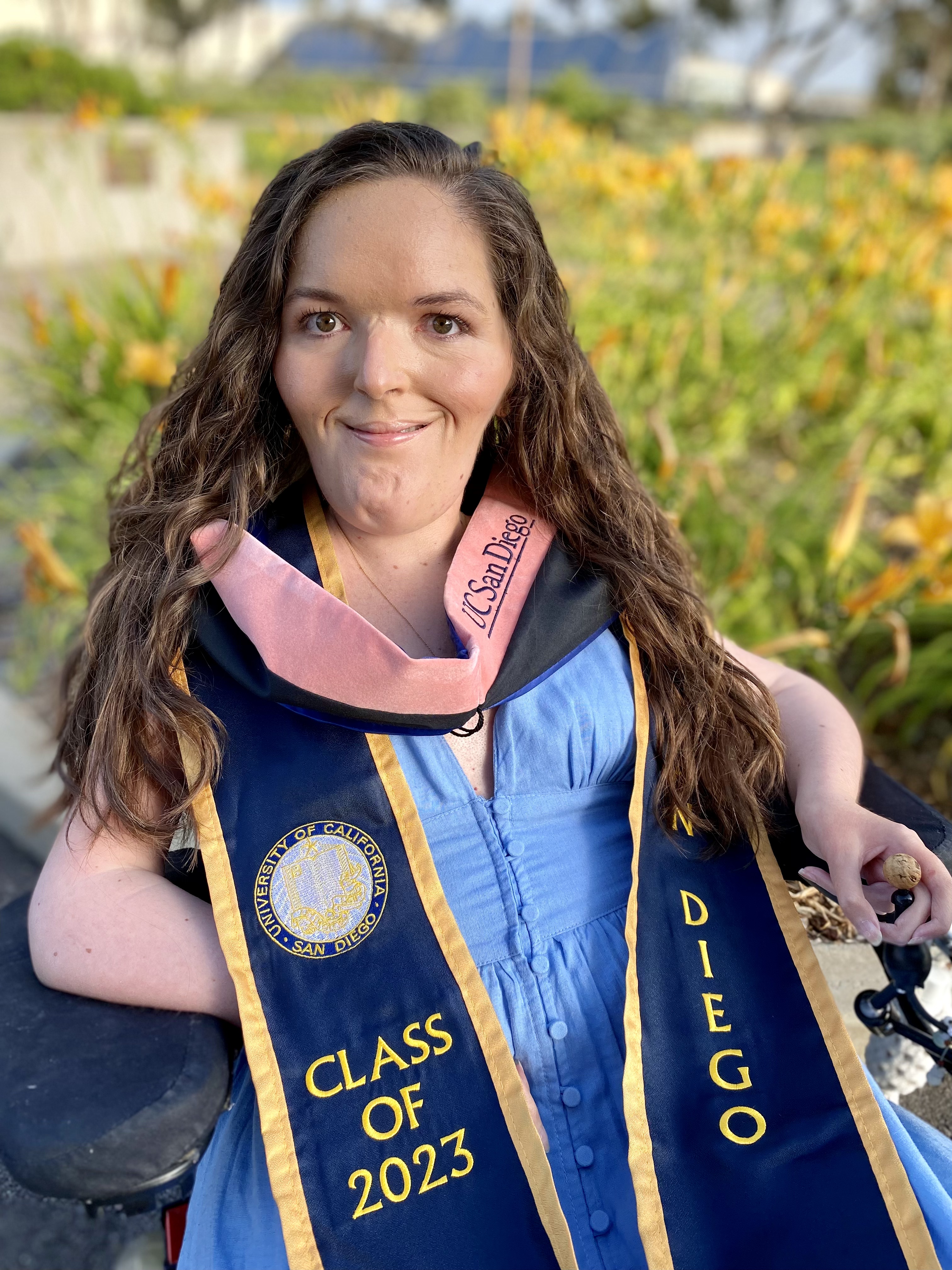
Linsey Wehner
Research Project: The Impact of Patient-Provider Communication on Stress in a Hospital Setting
Project Description: The purpose of the study is to determine if physicians are providing patients with effective, empathetic, and compassionate communication. We aim to determine the extent to which a lack of communication in acute critical care settings contributes to psychological stress and areas requiring improvement. Improving patient-provider communication has the potential to alleviate many healthcare discrepancies; therefore, the preliminary results of this study will be used to design curriculum for UC San Diego Health medical residents entering their training in intensive care/critical care medicine alongside practicing physicians in intensive care units. The curriculum will highlight compassionate communication skills and patient experiences.

Deborah Rana
Research Project: Brief Self-Compassion Training (BSCT) for 4th Year Medical Students: A Randomized Controlled Trial
Project Description: The literature notes decreased levels of empathy and compassion in medical students after medical school training. Self-compassion training has been shown to improve well-being and reduce burnout in healthcare providers. This study seeks to measure the impact on Well Being of Brief Self-Compassion Training embedded into a core 4th year block rotation in Family Medicine. Participants will be randomized to intervention vs control groups. We hypothesize improvements in psychological well-being through the skill of self-compassion. Self-report measurements will be taken before, after and 3 months post intervention.

Geoffroy Noel
Research Project: Most appropriate ways to present body donors to medical students’ to foster empathy, racial justice and inclusion during dissection
Project Description: With an increase in body donation, a new humanistic bound between the dissectors, often health care professional students, and the donors, who willingly consented to donate their bodies, can now be established. We can now re-humanize our approach to anatomy dissection, by retaining the body donors’ human characteristics, such as hair, tattoos and piercings, and providing students with the body donor’s self- reported ethnic background, gender, profession, and marital status, to address elements of perspective taking and dismantle mechanisms that lead to biases in patient care. The goal of this study is to understand how the personal information and individual physical characteristics, of body donors can impact medical students’ physiological and subjective markers of empathy and inclusion, during cadaveric dissection.

Jyoti Mishra
Research Project: Resilience in Practice
Project Description: This medical education program aims to build cognitive resilience through practice. Research has shown that physician trainees can feel overworked, stressed and hence, susceptible to burnout. In turn, burnout is associated with reduced personal resilience. With prior support from the Sanford Institute, we developed a digital wellbeing application that showed significant positive outcomes in physician trainees with practice over one academic quarter. Here we aim to pair this digital wellbeing practice with medical education about resilience. This proposal will (1) assess the feasibility of implementation of the “Resilience in Practice” medical education elective, and (2) evaluate its outcomes on resilience & wellbeing in physician trainees.

Anaheed Shirazi
Research Project: Impact of a Compassion-based Intervention on Empathy and Compassion, Emotional Intelligence and Wellness in Psychiatry Residents
Project Description: This is a randomized clinical trial to assess Impact of a compassion-based intervention on empathy and compassion, emotional intelligence and wellness in psychiatry residents. Through this intervention, participants will work on Settling the Mind, Intention Setting and Emotion Regulation, Loving-kindness and Self-appreciation, Self-care and Self-compassion, Empathy, Compassion, Resilience, and Integration. The hypothesis is that compassion-based training will improve empathy, compassion, emotional intelligence and wellness amongst psychiatry residents which is integral for patient- centered compassionate psychiatric care and is often missing from medical education in psychiatry residency programs.

Megha Shankar
Research Project: A Perfect Pair: Didactic Sessions and Community Partnerships as Social Justice Curriculum for Internal Medicine Primary Care Residents
Project Description: In this project, we seek to develop, implement, and evaluate an academic-community partnership based social justice curriculum within the primary care pathway of the UCSD Internal Medicine Residency Program. The longitudinal curriculum will involve academic workshops paired with community site visits on the following six intersectional topics: (1) correctional medicine, (2) senior care, (3) environmental justice, (4) trauma-informed care, (5) homeless medicine, and (6) refugee health. Through medical education scholarship, this curriculum will be developed with evidence, implemented within existing curricular structures, and evaluated with a validated survey measures. In this training, we hope to give dedicated time and training for important social justice topics in medicine.

Matthew Herbert
Research Project: From Training to Trait: Optimizing Compassion in the Workplace
Project Description: This project will develop and test a smartphone application, Compassion Coach, designed to increase and measure compassion practice in the daily lives of medical residents participating in the Caring from the Inside Out program. In addition to measuring the frequency of compassion practice, we also will assess the perceived impact of and barriers to compassionate interactions in medical residents, as well as collect participants perspectives on Compassion Coach to refine the application for future testing.

Maria Pelucio
Research Project: Training Emergency Medicine Residents in Trauma Informed Care: Patients
Experiencing Intimate Partner Violence
Project Description: Experiencing traumatic events can have long term effects on an individual’s physical and mental health. Emergency medicine residents will see many patients throughout their training with traumatic histories, with intimate partner violence (IPV) being one of the most insidious and prevalent. Most emergency medicine residents do not receive formal training in interviewing and examining IPV patients, or in the topic of trauma informed care. We plan to create a study testing the feasibility and efficacy of a simulation (SIM) curriculum that introduces best practice tenets of trauma informed care to emergency medicine residents with simulated patients experiencing intimate partner violence.
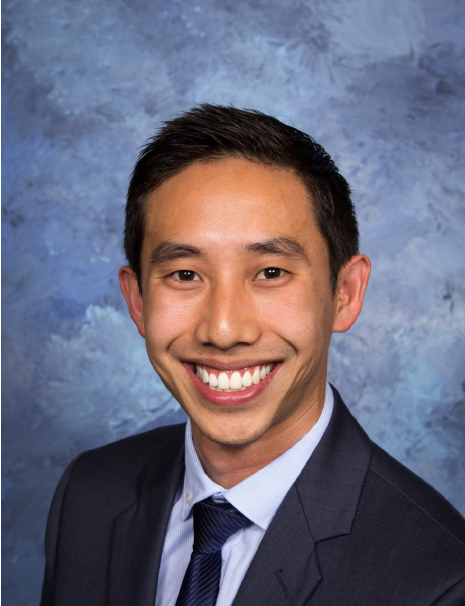
Aaron Lee
Research Project: Physician as “Patient”- Immersive Simulated Patient Experiences to Foster
Physician Empathy
Project Description: We propose that a lack of understanding by medical trainees of the lived patient experience is a significant reason for deficits in physician empathy and compassion. In this study, we investigate the use of role-reversal simulation activities as a novel modality towards fostering physician empathy and compassion in graduate medical education. This study will develop and evaluate the efficacy of numerous immersive simulation scenarios through use of simulation labs and hands-on didactics which will place resident physicians/medical trainees into simulated patient roles in the hopes of increasing appreciation of the patient experience, with the goal of increasing physician empathy while promoting more compassionate patient-centered care.
The Center supports a Longitudinal Cohort Study that collects information about empathy, compassion toward others, self-compassion, resilience and burnout from a random sample of medical students from all four classes (MS1-MS4). Surveys are completed four times each year throughout students' time at UC San Diego School of Medicine and even beyond! We aim to understand how empathy and compassion evolve throughout the course of medical education and how curricula focused on these qualities, developed in conjunction with the Sanford Institute, may affect this trajectory. Empathy and compassion are foundational to the practice of medicine and are associated with positive patient outcomes, lower burnout among healthcare professionals, and better well-being and work performance. However, studies have shown that, during the course of medical education, empathy and compassion decline, with an especially pronounced drop in the third year of medical school when students begin their clinical rotations. This will be the first longitudinal study to explore how empathy and compassion curricula impact these qualities throughout medical education.